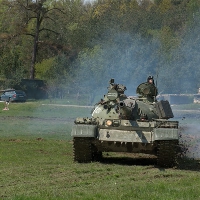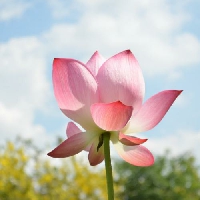It is about to enter September, and the countdown to the 2020 postgraduate entrance examination will begin. Then, in the next review, the experience of how to carry out a reasonable and efficient review plan based on their own actual situation and the occupation of political review is bound to increase in the next stage, and examinees must make full use of this critical period. The following editor has sorted out the four major political questions and nine points for attention. Let's have a look.
1. The strategy of political review should be changed according to the type of questions.
2. The requirements for subjective and objective questions, as well as different types of questions, such as single choice, multiple choice and analysis questions, and legend analysis questions, are completely different.
3. The examinee should distinguish the levels and use the systematic logic method to remember and memorize in parts, levels and order.
4. The characteristics of the test questions over the years are as follows: First, pay attention to the examination of basic theories;
Second, pay attention to the analysis of practical problems with basic theories;
The third is to pay attention to the integration of disciplines, analyze from different perspectives with the knowledge of different disciplines, and pay attention to the change of proposition trend.
5. The contents and requirements of the multiple choice questions (single choice and multiple choice) stem in recent years are roughly of the following types: (1) The stem provides a quotation to test the examinees' confirmation, understanding and grasp of the central idea of this quotation from the political, economic, philosophical and other theoretical or historical perspectives;
(2) It belongs to the accurate understanding and grasp of the relationship between concepts (theoretical viewpoints);
(3) Point out the questions according to the newly added knowledge;
(4) Calculation question;
(5) Situation and policy issues;
(6) Confirmation of important historical facts, important meetings, important documents and important persons;
(7) It belongs to the confirmation of basic concepts and views or the understanding and grasp of meanings;
(8) Belongs to the confirmation, understanding and grasp of the current major principles and policies of the Party and the country;
(9) It is required to raise the specific examples or materials in political, economic and social life provided by the question stem to the theoretical understanding, examine the examinees' understanding and grasp of relevant basic concepts and basic views, or give scientific evaluation.
6. Notes on specific question types Multiple choice questions——
(1) When reviewing, we should pay attention to thinking and strengthen the multi-level and all-round understanding of major events, important historical facts, basic concepts, basic theoretical views and their meanings; On the basis of understanding, comprehensive and accurate memory; Carefully examine the meaning of the question and carefully select alternative answers when taking the exam.
7. (2) Pay attention to the study of current affairs and politics at ordinary times.
8. The indefinite choice questions also give some questions that are closely related to reality, close to reality, and reflect the major policies and measures of the Party and the state.
9. Some are about the situation and policy.
10. These problems are often repeatedly publicized by newspapers over a period of time, and some examinees may seldom read newspapers or listen to the radio at ordinary times, so they know little and lose points.
11. (3) Pay attention to the problem of cross chapter content.
12. The examinee reviews chapter by chapter, section by section, one assessment point by assessment point, and the analysis of different levels, angles, and sides of a problem may be demonstrated in different chapters in the textbook or outline.
13. Cross chapter questions can be used to test the comprehensive understanding ability of candidates.
14. Therefore, when reviewing, examinees should pay attention to doing some comparison, analysis and comprehensive work on the relevant contents before and after review.
15. When listening to the tutorial class, pay attention to the teacher's tips in this regard.
16. (4) The answer to the indefinite choice question is also definite and normative.
17. When reviewing the textbook or reading each chapter, pay attention to the memory of the contents marked with (1), (2), (3) or "on one hand" and "on the other hand", or the third ", as well as the numerator, denominator, direct ratio, inverse ratio, etc.
18. Because these contents are very standard, it is easy to give indefinite multiple choice questions.
19. Short answer question on current affairs and politics - First, it involves the key and hot issues in the country's political and economic life of that year; Second, its time range is from March to October of that year; Third, the short answer questions require memorization and analysis.
20. This requires examinees to be proficient in materials related to current affairs and politics, and to be able to analyze hot events based on Marxist principles.
21. Differentiated questions - there are two modes of problem setting: either this or that, or right or wrong;
The second is that there are both right and wrong parts in the question.
22. When answering questions, pay attention to analyze first, and then draw a conclusion. Easy judgment may lead to errors.
23. Argument question - three points should be paid attention to in the argument question. One is to summarize the views in the question;
The second is to analyze the topic with the basic theory learned;
Third, put forward their own views to ensure logical structure and clear thinking.











